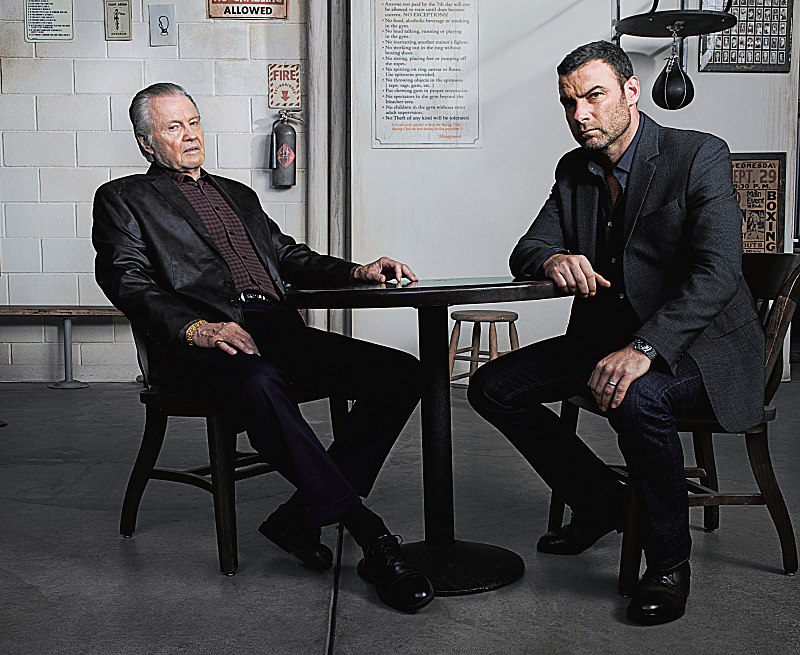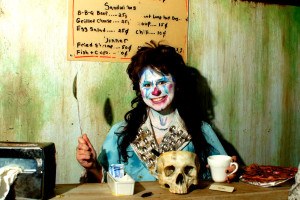Is Ray Donovan Another Classic Case of Boston Misrepresentation?

Image via Ray Donovan / Facebook
As HBO’s Game of Thrones and AMC’s Mad Men came to an end last month, Showtime’s epic new drama series Ray Donovan swooped right in to catch viewers’ attention—and according to reviews, it’s the TV frontrunner of the season. The show broke ratings records for Showtime in just its second episode, and a week later Ray Donovan was picked up for a second season.
Obviously this show has something special. It’s hard to describe in one sentence exactly what it’s about, considering all the characters and intertwining story lines. But essentially this guy Ray Donovan (Liev Schreiber) up and moves with his family from South Boston to Los Angeles to become a Hollywood “fixer” for the rich and famous. And Ray Donovan is a badass whose reputation precedes him. Then, enter Ray Donovan’s father, Mickey (Jon Voight). He’s fresh out of jail in Boston and (after immediately murdering a seemingly arbitrary priest) heads to the West Coast as well. Ray’s brothers are Terry, who has Parkinson’s disease, and Bunchy, an addict about to make millions in a settlement from the Boston Archdiocese for having been abused by a priest. And in the mix of all this, there are illegitimate siblings, lots of adultery, and plenty of dead bodies. Many are calling Ray Donovan the next Sopranos.
In spite of its success, Ray Donovan has, however, has been receiving a lot of backlash for being generously offensive in many ways. Let’s look at, for example, how gay relationships are perceived on Ray Donovan. In one scene with Mickey and Ray’s son Connor, Mickey tells Connor that if he is gay, it’s okay because “a mouth is a mouth,” but just don’t “let anybody take you in the ass because that’s how you get diseases.” A comment to which Connor replies, “Thanks, Grandpa Mickey!”
Also, an entire plot line is dedicated to how Catholic priest sexually abusing Bunchy as a young boy and the post-trauma he’s still coping with as an adult. The way Mickey addresses his son’s situation is completely derogatory. He cracks jokes about it and is unable to sensibly and empathetically cope with Bunchy’s post-traumatic stress.
GLAAD also wrote about Ray Donovan‘s disrespectful portrayal of the transgender community. GLAAD proposes that in its premiere episode, there were “several scenes exploiting transgender people for ‘shock value’ and a cheap laugh.” In the show, one of Ray’s clients wakes up next to a dead woman who overdosed while another movie star client woke up next to a transgendered person. The latter, however, argued that he didn’t know the woman was a “tranny” even though she “had an Adam’s apple the size of my fist.” Ray’s solution was to switch his clients’ roles and leak to the press that the movie star actually woke up next to the overdosed girl. GLAAD argues, “In the show’s reality, it’s apparently better to be found with an overdosed corpse than with a transgender woman.”
The transgender situation here is insensibly presented, yes. However, I believe that the show is very aware of its psychosexual themes and undertones. It purposely creates sexual tensions to get a rise out of its audience. In other words, they are intentionally offending you. But why?
The show is trying to illustrate the Donovan family’s values. And where do values stem from? Your upbringing. Your background. The Donovans are cold-blooded, Irish-Catholic Bostonians. What we have here is another classic case of Boston stereotypes being dramatized as disrespectful, ignorant, and aggressive. The problem is not that these characters are offensive. It’s that they are very obviously offensive. It’s dramatic. It’s unrealistic. It’s unauthentic. And it’s lazy writing. Ultimately, they’re using provocation over authentic plot substance. And viewers are falling for it.


